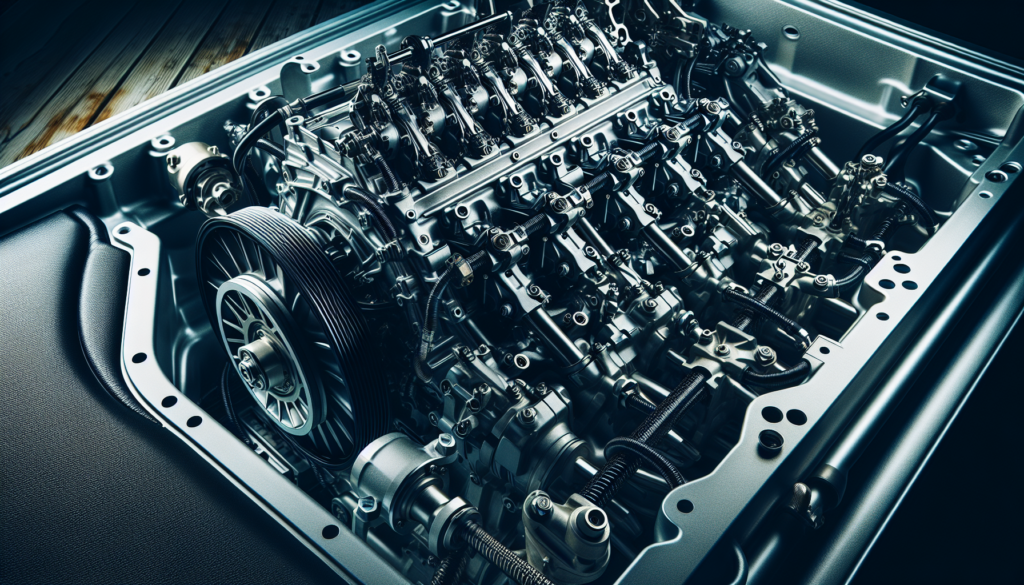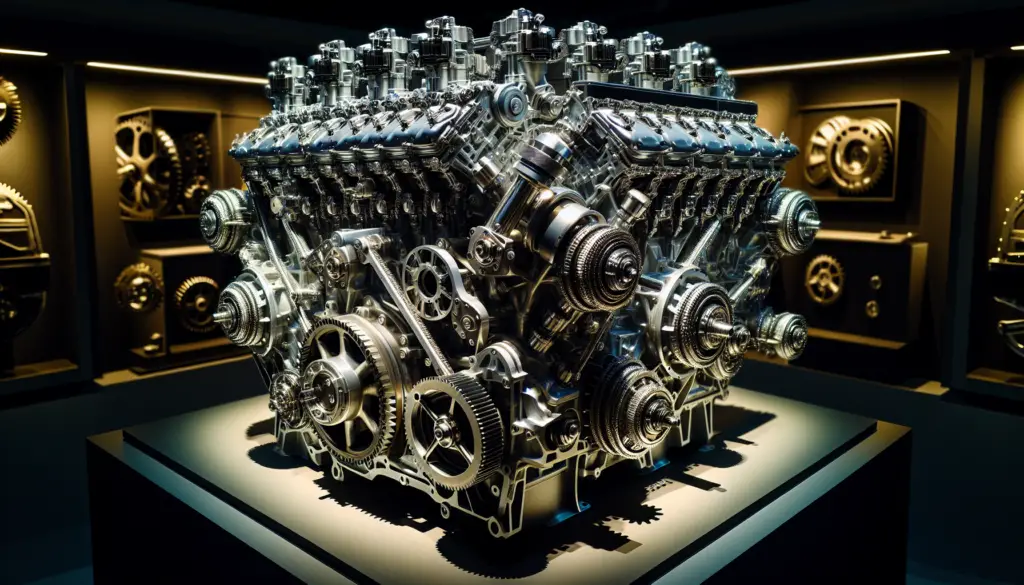Customizing your boat engine can be an exciting and rewarding experience, allowing you to enhance performance, improve fuel efficiency, and make your vessel truly unique. However, it’s important to consider a few key factors before diving into the customization process. From your boat’s size and weight to your desired speed and power, these factors will play a crucial role in determining the appropriate modifications for your engine. By carefully considering these factors, you can ensure that your boat engine customization will deliver the desired results and enhance your overall boating experience.

Choosing the Right Type of Engine
When customizing your boat engine, one of the first decisions you need to make is selecting the right type of engine for your vessel. There are three main options to consider: gasoline engines, diesel engines, and electric motors.
Gasoline Engines
Gasoline engines are commonly used in recreational boats due to their affordability and widespread availability. They provide good acceleration and are suitable for smaller boats. Gasoline engines are generally less expensive to maintain compared to diesel engines. However, they are less fuel-efficient and may require frequent refueling, especially for longer journeys.
Diesel Engines
Diesel engines are known for their durability and fuel efficiency. They are popular among boaters who require stronger propulsion and extended range. Diesel engines are often found in larger vessels and commercial boats. Although diesel engines tend to be more expensive upfront, they offer savings in the long run due to their lower fuel consumption. It is important to note that diesel engines require regular maintenance and may have higher maintenance costs.
Electric Motors
Electric motors have gained popularity in recent years as environmental concerns have heightened. They are a clean and quiet option that produces zero emissions. Electric motors are suitable for smaller boats and are often used for cruising or recreational purposes. However, they may have limited range and require charging infrastructure. Electric motors can provide a smooth and efficient ride, but they may not be ideal for high-speed applications.
Determining the Horsepower Requirement
After selecting the type of engine, it is crucial to determine the horsepower requirement for your boat. The horsepower needed depends on various factors, including the weight and size of the boat, the intended use, and the desired speed.
Weight and Size of the Boat
The weight and size of your boat play a significant role in determining the horsepower requirement. As a general rule, heavier and larger boats require more horsepower to achieve optimal performance. Consider the weight of your boat, including passengers and cargo, when calculating the required horsepower.
Intended Use of the Boat
The intended use of your boat also affects the horsepower requirement. If you plan to use your boat for recreational activities such as water sports or cruising, you may need more horsepower to accommodate these activities. On the other hand, if your primary use is fishing or leisurely cruising, you may not require as much horsepower.
Speed Requirements
The desired speed of your boat is another vital factor. If you aim for higher speeds, you will need a more powerful engine with a higher horsepower rating. Keep in mind that achieving higher speeds may result in increased fuel consumption and may require a more advanced engine.
Considering the Fuel Efficiency
Fuel efficiency is an essential factor to consider when customizing your boat engine. It not only affects the cost of operating your boat but also has environmental implications.
Environmental Impact
Boating enthusiasts are increasingly conscious of their environmental footprint. Opting for a fuel-efficient engine can help reduce emissions and minimize the impact on the environment. Diesel engines typically offer better fuel efficiency and emit less carbon dioxide compared to gasoline engines. Electric motors, being emission-free, are the most environmentally friendly option.
Fuel Costs
Fuel costs can significantly impact your boating experience. Engines that are more fuel-efficient will consume less fuel, resulting in cost savings in the long run. Diesel engines and electric motors generally have better fuel efficiency compared to gasoline engines, allowing you to get more mileage per gallon or charge.
Range of the Boat
The range of your boat, or how far it can travel on a full tank of fuel or charge, is an important consideration. If you plan to embark on longer journeys, selecting a fuel-efficient engine with a longer range is crucial. Understanding the range of your boat will help you plan trips more effectively and avoid unexpected fuel shortages.
Selecting the Propeller
Choosing the right propeller for your boat is key to achieving optimal performance and efficiency. Consider the propeller’s material and design, as well as the pitch and diameter, and the potential for cavitation.
Material and Design
Propellers are commonly made of stainless steel, aluminum, or composite materials. Each material has its advantages and disadvantages. Stainless steel propellers are highly durable and can withstand harsh conditions but may come at a higher cost. Aluminum propellers are more affordable but not as durable. Composite propellers can provide a balance between durability and cost. Additionally, the design of the propeller, including the number of blades and their shape, can affect performance.
Pitch and Diameter
The pitch and diameter of the propeller are crucial factors in optimizing the engine’s performance. The pitch refers to the distance the propeller moves forward in one revolution. A higher pitch leads to higher speeds, while a lower pitch improves acceleration. The diameter of the propeller impacts the overall thrust generated. Choosing the right combination of pitch and diameter will depend on your boat’s size, weight, and usage.
Cavitation Potential
Cavitation occurs when the pressure surrounding the propeller drops, causing bubbles to form and collapse rapidly. This can lead to reduced efficiency and damage to the propeller. Selecting a propeller with a lower cavitation potential will help maintain optimal performance. Factors such as the design and diameter of the propeller, as well as the engine’s RPM (revolutions per minute), can influence cavitation.

Optimizing Power and Torque
To enhance the performance of your boat engine, optimizing power and torque is essential. Upgrading the exhaust system, intake system, and installing a performance chip or tuner can help achieve this.
Modifying the Exhaust System
Modifying the exhaust system can improve the engine’s power and efficiency. Upgrading to a high-performance exhaust system allows for smoother airflow and reduces restrictions. This modification can result in increased power output and better fuel economy.
Upgrading the Intake System
The intake system is responsible for supplying air to the engine. Upgrading the intake system, such as installing a cold air intake or a high-flow air filter, can improve airflow and increase engine efficiency. This enhancement can enhance horsepower and torque, resulting in better overall performance.
Installing a Performance Chip or Tuner
A performance chip or tuner can optimize the engine’s parameters, including fuel injection timing, air-to-fuel ratio, and ignition timing. By fine-tuning these parameters, you can unlock additional power and torque from your engine. This modification is often recommended for enthusiasts looking for significant performance gains.
Enhancing Cooling and Ventilation
Efficient cooling and ventilation systems are crucial for maintaining optimal engine performance and preventing overheating. Consider upgrading the cooling system and installing a ventilation system.
Upgrading the Cooling System
Upgrading the cooling system can improve the engine’s ability to dissipate heat. A more efficient cooling system can reduce the risk of overheating and extend the engine’s lifespan. Consider upgrading components such as the radiator, water pump, and thermostat to ensure proper cooling.
Installing a Ventilation System
A ventilation system can help circulate air and remove heat from the engine compartment. This is especially important in enclosed spaces with limited airflow. Installing vents or fans can enhance ventilation, preventing heat buildup and ensuring the engine operates at its optimal temperature.

Improving Fuel Delivery
Efficient fuel delivery is essential for maximizing engine performance. Consider upgrading the fuel injectors, installing a fuel pressure regulator, or employing a high-flow fuel pump.
Upgrading the Fuel Injectors
Upgrading the fuel injectors can enhance fuel atomization and delivery, resulting in improved combustion and power output. Fuel injectors with a higher flow rate can provide better fuel economy and increased horsepower. Consult with a professional to select the right fuel injectors for your engine and ensure proper installation.
Installing a Fuel Pressure Regulator
A fuel pressure regulator helps regulate the fuel pressure supplied to the engine. An upgraded fuel pressure regulator can allow for precise control over the fuel delivery, ensuring optimal performance. It can also enhance fuel economy and prevent fuel-related issues.
Employing a High-Flow Fuel Pump
A high-flow fuel pump can deliver a greater volume of fuel to the engine, enabling increased horsepower and torque. Upgrading to a high-flow fuel pump ensures a consistent fuel supply, especially when the engine requires more fuel during high-performance operations. Proper installation and adjustment are crucial to avoid fuel system complications.
Using High-Quality Lubricants
Using high-quality lubricants is vital for maintaining engine performance and extending its lifespan. Consider choosing the right oil, whether synthetic or conventional, and staying on top of regular oil changes.
Choosing the Right Oil
Selecting the right oil for your engine is crucial. Consult your engine manufacturer’s recommendations or seek professional advice to ensure you’re using the appropriate oil for your specific engine model. Consider factors such as viscosity, additives, and compatibility with your engine’s components.
Using Synthetic or Conventional Oil
The choice between synthetic and conventional oil depends on your engine’s requirements and your personal preferences. Synthetic oil offers several advantages, including improved engine protection and better performance in extreme temperatures. Conventional oil, on the other hand, may be more cost-effective for certain engines and operating conditions. Consider factors such as climate, engine workload, and maintenance intervals when making this decision.
Regular Oil Changes
Regular oil changes are essential for maintaining optimal engine performance. The frequency of oil changes depends on various factors, including the engine’s age, usage, and operating conditions. Follow the manufacturer’s recommendations and establish a regular maintenance schedule to ensure the engine is consistently lubricated and protected.

Ensuring Proper Electrical System
The electrical system of your boat plays a critical role in powering various components and ensuring the engine operates smoothly. Regular inspections and maintenance are necessary to ensure a properly functioning electrical system.
Inspecting Battery and Wiring Connections
Regularly inspect the battery and wiring connections to ensure they are clean, secure, and free from corrosion or damage. Faulty connections can lead to electrical issues, including a loss of power or engine failure. Clean the battery terminals and replace any damaged or worn-out wiring as needed.
Adding an Alternator or Generator
Consider adding an alternator or generator to your boat’s electrical system if you require additional power. These devices can charge the battery and supply electricity to various onboard accessories and systems. Consult with a professional to determine the appropriate capacity and ensure proper installation.
Installing a Battery Charger
A battery charger can help maintain the battery’s charge and prolong its lifespan. Consider installing a smart charger or a trickle charger that automatically adjusts the charging voltage to prevent overcharging. Regularly recharge the battery and monitor its voltage to ensure optimal performance.
Maintaining the Engine
Proper maintenance is key to prolonging the life of your customized boat engine and ensuring reliable performance. Establish a regular cleaning and inspection routine, follow a periodic maintenance schedule, and address any issues promptly.
Regular Cleaning and Inspections
Regularly clean your engine, both internally and externally, to remove dirt, debris, and salt deposits. Inspect the engine components for any signs of wear, corrosion, or leaks. Clean or replace air filters, fuel filters, and other consumable parts according to the manufacturer’s recommendations.
Periodic Maintenance Schedule
Follow a periodic maintenance schedule based on your engine manufacturer’s guidelines. This may include tasks such as changing oil and filters, inspecting belts and hoses, checking fluid levels, and performing tune-ups. Adhering to the recommended maintenance intervals will help keep your engine in top shape and prevent major issues.
Addressing Issues Promptly
If you notice any unusual sounds, vibrations, or performance issues with your customized boat engine, address them promptly. Ignoring or delaying repairs can lead to more significant problems down the line. Consult with a professional if you are unsure of the cause or how to fix the issue. Regularly monitor engine performance and seek professional assistance for complex repairs or maintenance tasks.
Customizing your boat engine allows you to optimize performance, efficiency, and reliability according to your specific needs. Consider these key factors and consult with professionals to make informed decisions when selecting engines, propellers, and customization options. By investing in the right customization choices and maintaining your engine properly, you can enjoy many years of smooth and enjoyable boating experiences.



[…] are a must-have tool for any DIY boat engine modification project. They are essential for tightening and loosening nuts and bolts, making them a versatile […]